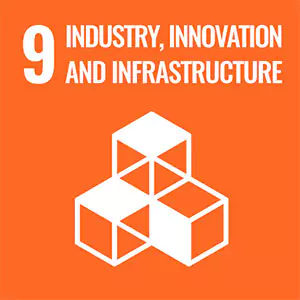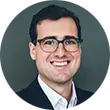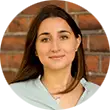MSc Applied and Computational Mathematics
The master's programme in Applied and Computational Mathematics fosters skilled applied mathematicians, well-prepared for advanced industrial positions or PhD studies. The programme offers four tracks: Computational Mathematics, Financial Mathematics, Optimisation and Systems Theory, and Mathematics of Data Science. Graduates acquire skills in advanced mathematics and computer simulation that are in demand in several important fields.

Applied and Computational Mathematics at KTH
Computer simulations is of great importance for the high-tech industry and scientific and engineering research, for example, virtual processing, climate studies, fluid dynamics and advanced materials. Thus, computational science and engineering is an enabling technology for scientific discovery and engineering design. It involves mathematical modelling, numerical analysis, computer science, high-performance computing and visualization. The remarkable development of large-scale computing in the last decades has turned computational science and engineering into the "third pillar" of science, complementing theory and experiment.
Computational mathematics track
The Computational Mathematics track focuses on the mathematical foundations of computational science and engineering, with an emphasis on three core areas: numerical methods for partial differential equations, high-performance computing, and inverse problems. In addition, the track addresses broader topics in high-performance computing and its role in large-scale simulations.
Given its interdisciplinary nature, the curriculum can be tailored to your individual interests, allowing flexibility in specialization. The courses offered provide a strong background in the design, analysis, and application of numerical methods for mathematical modeling, equipping you with the tools needed for advanced computer simulations in both research and prototyping.
Financial mathematics track
Financial mathematics is a branch of applied mathematics devoted to analyzing and solving problems related to financial markets. A central principle is that any informed market participant would exploit an opportunity to make a profit without risk of loss—this is the foundation of the theory of arbitrage-free pricing of derivative instruments. While arbitrage opportunities do exist, they are rare; in practice, both potential gains and losses must be carefully considered. Tools such as hedging and diversification are used to reduce risk, while speculative strategies aim to maximize profits. Market participants form different expectations about future price movements and combine these with current market information to manage risk while seeking opportunities for return.
The field encompasses portfolio theory and quantitative risk management, which provide the theoretical and methodological basis for decision-making in modern financial markets. Over the past decades, financial mathematics has attracted significant attention from both academics and practitioners, with mathematical sophistication in the field growing substantially.
Within this landscape, the financial mathematician plays a key role: designing and analyzing mathematical models of financial instruments, developing pricing techniques, assessing and managing risk, and translating complex market dynamics into quantitative strategies. While such models are powerful tools, it remains essential to recognize that they are simplifications of reality—mathematical sophistication can inform and guide decision-making, but it cannot replace common sense or a clear understanding of the limitations of modeling.
Optimization and Systems Theory track
Optimization and Systems Theory is a discipline in applied mathematics primarily devoted to optimization methods, including mathematical programming and optimal control, and systems theoretic aspects of control and signal processing. The field is also closely related to mathematical economics and applied problems in operations research, systems engineering and control engineering. The track provides knowledge and competence to handle various optimization problems (both linear and nonlinear), build up and analyze mathematical models for multiple engineering systems, and design optimal algorithms, feedback control, filters and estimators for such systems.
Optimization and Systems Theory have broad applications in both industry and research. Examples of applications include aerospace, engineering, radiation therapy, robotics, telecommunications, and vehicles. Furthermore, many new areas in biology, medicine, energy and environment, and information and communications technology require an understanding of both optimization and system integration.
Mathematics of Data Science track
Statistics is the science of learning from data. In classical statistics, the goal is to explain data by proposing a plausible model and testing whether the data supports it. In contrast, modern approaches focus more on computational statistics and automated methods for extracting information.
Advances in technology and the vast growth of available information have led to the rise of massive, complex data sets. Analyzing such data requires tools that combine mathematics, statistics, optimization, and computational learning methods.
Making good decisions under uncertainty in these settings involves modeling and identifying the most relevant features in the data, optimizing decision policies and model parameters, reducing complexity through dimension reduction, and performing large-scale computations.
As a result, data science grounded in applied mathematics has enormous potential to transform fields ranging from the natural sciences to business and the social sciences.
This is a two-year programme (120 ECTS credits) given in English. Graduates are awarded the degree of Master of Science. The programme is given mainly at KTH Campus in Stockholm by the School of Engineering Sciences (at KTH).
Courses in the programme
The courses in the programme cover topics such as optimization, mathematical systems theory, systems engineering, modelling and simulation, numerical methods and applications, parallel and high-performance computations, big data, machine learning, arbitrage pricing, portfolio theory and risk management.
Courses in the master's programme Applied and Computational Mathematics
Future and career
Advanced mathematics and computer simulations are present in several important fields; their use has increased dramatically with the rapid development of computer software and hardware. Financial mathematics, medicine and biology are prevalent areas, but you will be able to bring the usage of mathematics and simulations into a multitude of applications.
The graduates of this programme are in high demand in the labour market as well as in academia. Graduates work in companies like Ericsson, ABB, Comsol, SAAB, RaySearch Labs, Modelon, If, Citibank, Brainlab, ÅF, Atlas Copco, Elekta, Process Systems Enterprise, Goldman Sachs, and many others. You can expect to take on roles such as technology manager, deep learning software engineer, team leader, professor, credit risk analyst, CEO, marketing and sales manager, technical director and development engineer.
Graduates from the programme also go on to academic careers with doctoral studies at KTH, other Swedish universities, or other leading European and US universities.
Sustainable development
Graduates from KTH have the knowledge and tools for moving society in a more sustainable direction. The particular strength of mathematics is its high degree of abstraction, with the same mathematical model used to describe very different features in many different areas of application. This versatility leads to the effect that once you can quantify phenomena, you will be able to investigate them independently of their source, for example, in science, engineering, society and the economy. Many of the UN goals of sustainable development are accordingly linked to Applied Mathematics, to name just a few: Good health and well-being, Affordable and clean energy, Decent work and economic growth, Industry, innovation and infrastructure, Sustainable cities and communities, Climate action, Life below water, Reduced inequality and others. The master’s programme in Applied and Computational Mathematics provides the student with the knowledge and tools applicable for their successful treatment. You will see examples of how to do this in different courses. It is not uncommon for the final master’s degree project to be devoted to questions related to sustainable development and its various goals. The examples of sustainable development goals addressed by the programme are:



Examples of master's degree projects relating to Climate Action are: Efficient computational methods for climate models (collaboration with SMHI), Consequences of climate change for the electric power supply (in collaboration with SWECO), and Polynomial chaos expansion for climate economy assessment (in collaboration with Karlsruhe Institute of Technology).
Examples of master's degree projects relating to Good Health and Well-Being are: Optimal construction of medical equipment for cancer treatment (in collaboration with RaySearch Labs), Simulation of suturing for surgeon training (in collaboration with SenseGraphics);, and Proton arc therapy optimization (in collaboration with RaySearch Labs).
Examples of master's degree projects relating to Industry, Innovation and Infrastructure are: Optimal traffic planning for autonomous vehicles (in collaboration with Volvo Construction Equipment), Optimal energy management for parallel hybrid electric vehicles (in collaboration with Scania), and Optimal driving decision based on energy and time costs (in collaboration with Volvo).
Faculty and research
The programme is run by the Department of Mathematics at KTH, which hosts some of the strongest Swedish research groups in mathematics. It comprises four units: Mathematics, Mathematical Statistics, Optimization and Systems Theory, and Numerical Analysis. Jointly, these units perform research in a broad spectrum of mathematical disciplines, ranging from pure to applied mathematics. Some of the current larger research centres hosted at the department are:
- Random matrices, sponsored by the Wallenberg foundation
- Image processing, sponsored by SSF
- PDE, sponsored by the ERC/VR/Gustafsson's foundation
- MathDataLab, sponsored by Brummer & Partners
Research carried out at the Division of Optimization and Systems Theory includes various topics in mathematical systems theory (Xiaoming Hu, Per Enqvist and Johan Karlsson), with particular emphasis on stochastic systems, filtering, identification and robust and nonlinear control; mathematical programming (Anders Forsgren, Per Enqvist and Jan Kronqvist), with large-scale nonlinear programming, structural optimization, mixed-integer optimization; and a wide range of applications. Examples of applications include radiation therapy (Forsgren), robotics (Hu), and telecommunications (Karlsson).
The research in the Division of Numerical Analysis includes:
- numerical methods for stochastic and deterministic differential equations (Anders Szepessy, member of the Royal Swedish Academy of Sciences, and Mattias Sandberg),
- numerical methods for micro and complex flow (Anna-Karin Tornberg, member of the Royal Swedish Academy of Sciences and the Royal Swedish Academy of Engineering Sciences, and Katarina Gustavsson),
- multiscale methods (Olof Runborg),
- numerical linear algebra (Elias Jarlebring)
- inverse problems (Ozan Öktem),
- and finite element methods for multiphase flow (Sara Zahedi, Jennifer Ryan).
The researchers are working actively in many interdisciplinary cooperative ventures, for example, the Swedish e-Science Research Centre (SeRC), the Linné FLOW Centre, and Karolinska Institutet. You will also have access to Sweden's fastest supercomputers via the PDC Centre for High-Performance Computing.
The Division of Mathematical Statistics hosts active groups in probability theory and statistical theory with applications to finance and risk management (Boualem Djehiche, Henrik Hult, Sigrid Källblad and Camilla Landen), statistical learning (Henrik Hult, Jimmy Olsson, Pierre Nyquist, Joacim Anden and Nacira Agram), Monte Carlo methods (Henrik Hult, Jimmy Olsson and Pierre Nyquist), computational statistics (Jimmy Olsson and Pierre Nyquist), and high-dimensional models (Kevin Schnelli).






